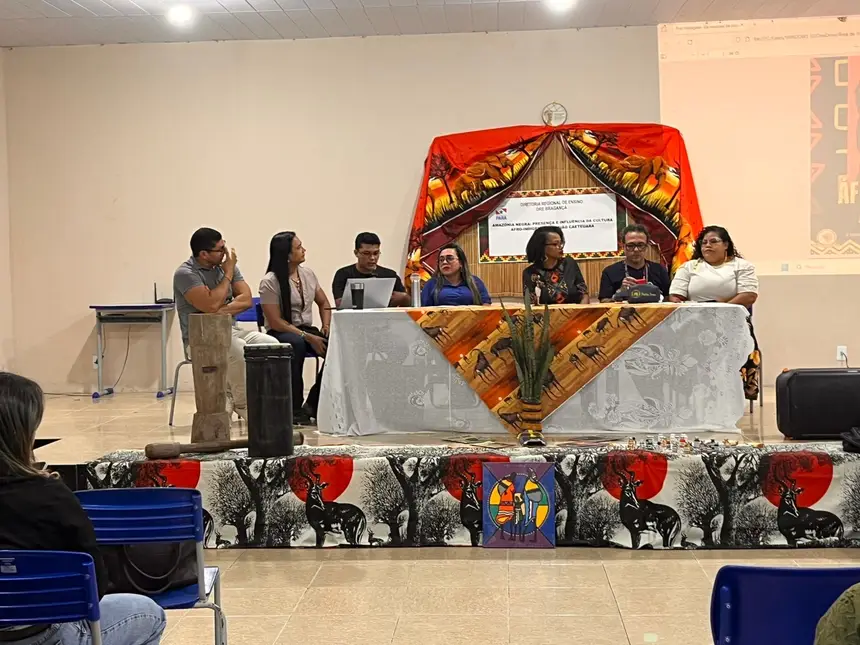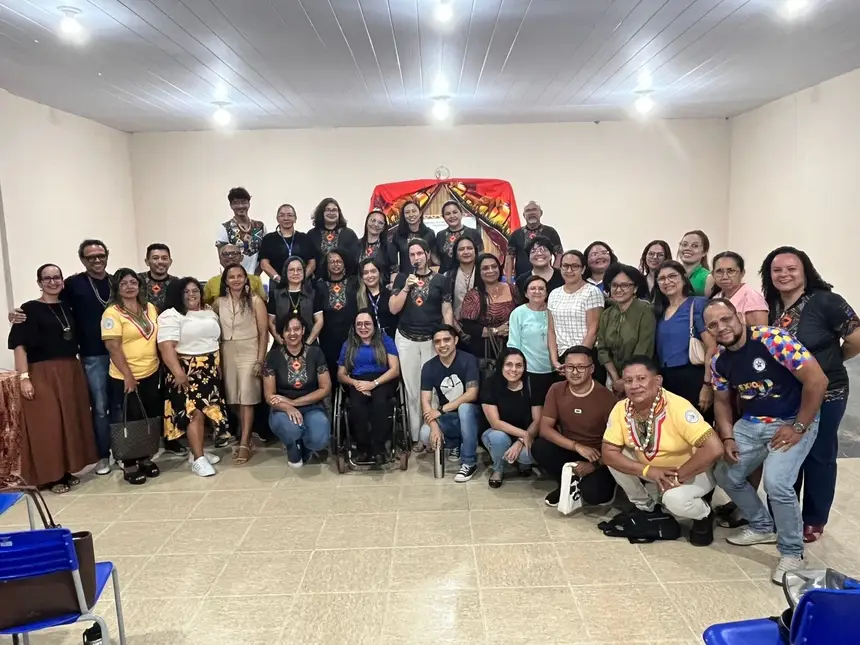Regional Education Board of Bragança highlights Afro-Indigenous presence in Caeteuara culture
Educators, managers, researchers, and municipal representatives reaffirmed the State's commitment to an anti-racist education
The Regional Education Board (DRE) of Bragança, linked to the State Department of Education (Seduc), held the event "Black Amazon: Presence and Influence of Afro-Indigenous Culture in the Caeteuara Region" on Tuesday (18), bringing together educators, managers, researchers, and municipal representatives in the auditorium of the Luís Paulino Martires School in Bragança, northeastern Pará. The program reaffirmed the commitment of the State's public education network to promoting an anti-racist, democratic, and culturally referenced education.
The regional director, Professor Thayse Alvão, opened the program by highlighting the importance of the meeting as a space for collective reflection. "This event is an invitation to value identities and recognize the historical and cultural strength of the Afro-Indigenous peoples who build the wealth of our region. We thank all the educators, managers, and municipal representatives for their presence, which strengthens the commitment to inclusive and transformative education," she emphasized.
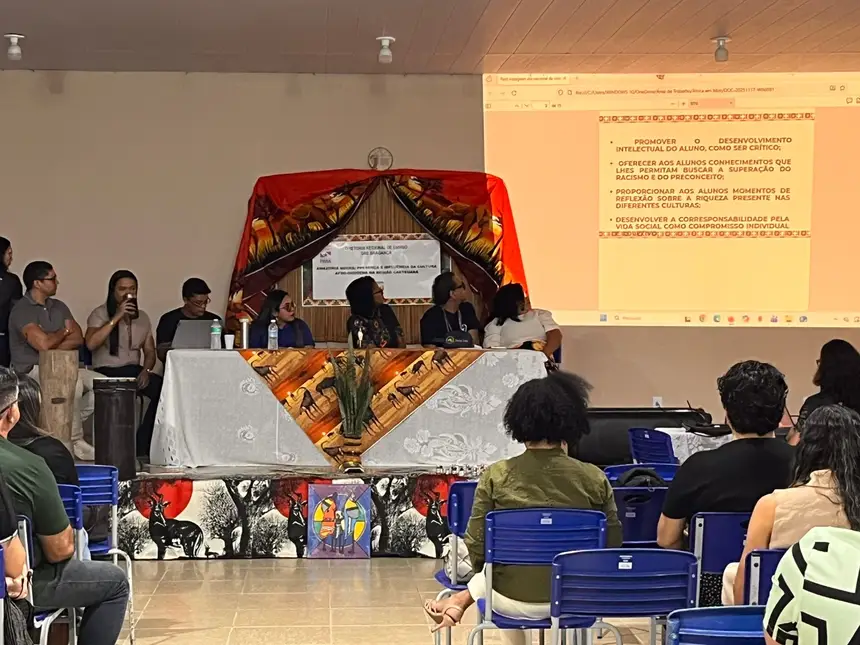
The first panel of discussions addressed the theme "Anti-Racist Educational Practices in Schools of the Bragantina Region," opening space for discussions and highlighting inspiring experiences developed by the schools in the region. The panel brought together teachers from the state network from various municipalities in the region, such as Tracuateua, Bragança, Cachoeira do Piriá, Augusto Corrêa, and Viseu, who presented actions built in their school territories to strengthen an education committed to confronting racism and valuing Afro-Indigenous identities.
Civic Education - Within the program, projects were presented that incorporate history, culture, and ancestry into the pedagogical daily life, promoting meaningful learning and reinforcing the sense of belonging among students. The experiences showed how anti-racist educational practice can transform the school environment and contribute to the formation of critical, conscious, and respectful citizens towards diversity.
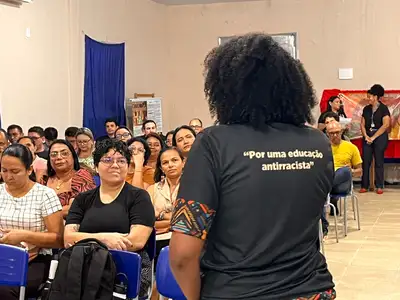
The panel included the presence of teachers from various schools in the region, presenting practices developed in different realities, with the same purpose of promoting a fairer and more equitable education. The activity reinforced the need to strengthen pedagogical policies aimed at ethnic-racial relations and to ensure that schools are spaces of welcome, respect, and affirmation of identities.
Orchestra of Berimbaus - The presentation of the Orchestra of Berimbaus from the Capoeira Angola Malungo Collective, organized by Professor Antônia Menezes, was marked by traditional rhythms, symbolic movements, and strong ancestral expression, capturing the audience's attention and transforming the auditorium into a space for celebrating Afro-Brazilian culture.
The performance moved those present, highlighting the artistic and historical richness of capoeira, whose musicality echoes resistance, identity, and collective memory.
For Professor Antônia Menezes, the presence of culture within the school is fundamental in confronting racial inequalities. "Education without culture is not anti-racist, much less decolonial. To build an anti-racist education, it is necessary to work on culture," said the professor, emphasizing that valuing traditional knowledge is an essential part of a truly transformative educational project.
Management Strategies - The second roundtable addressed "Anti-Racist Educational Practices in Municipal Education Departments," including in the debate the institutional policies developed by the municipalities in the region. Representatives from the Municipal Education Departments shared guidelines, programs, and management strategies that have been strengthening the implementation of education for ethnic-racial relations in their territories. Each representative presented initiatives that demonstrate the commitment of the departments to a more inclusive, participatory educational management connected to the cultural realities of the region.
During the discussions, continuing education projects for teachers, curricular review actions, strengthening of ethnic-racial relations education coordinations, and initiatives to value traditional communities were presented. The panel highlighted how well-structured public policies can directly impact the work of schools and enhance anti-racist pedagogical practices.
The exchange between municipalities showed that confronting racism and promoting racial equity are processes that require planning, commitment, and inter-institutional articulation. The experiences reported reinforced the importance of permanent policies and integrated actions between the State and municipalities, consolidating the role of the departments as protagonists in building a transformative and socially just education in the Bragantina region.
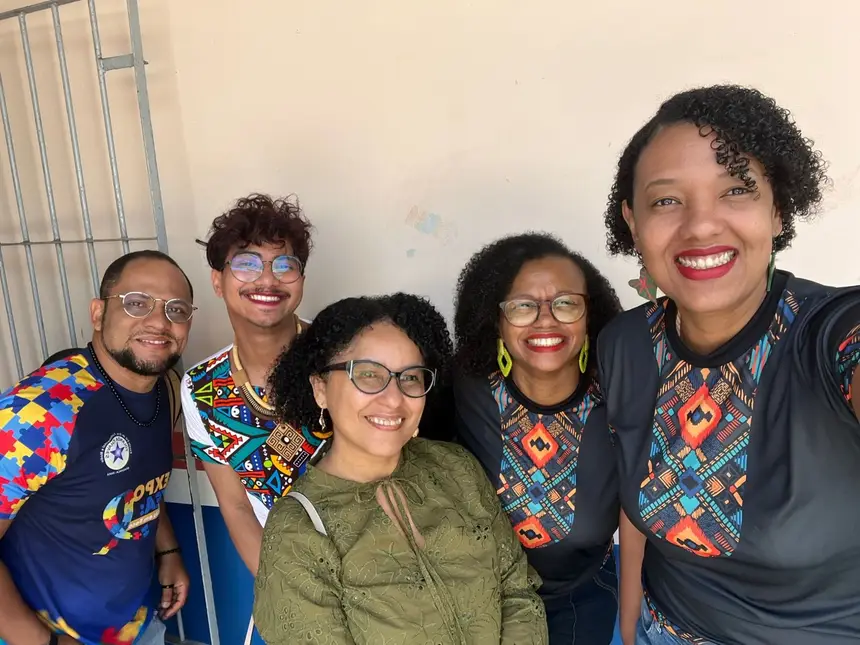
Anti-Racist Education - The event "Black Amazon" ensured spaces for training, dialogue, and valuing the identities that make up the diversity of the Caeteuara region. The articulation between state schools, Municipal Education Departments, and academic institutions highlighted the power of collective actions in confronting racism.
The program emphasized that anti-racist education must be a permanent commitment, based on solid policies, consistent pedagogical practices, and the recognition of the Afro-Indigenous histories and knowledge that shape Amazonian identity. By integrating different sectors and territories, the event reinforced the role of the public network as a protagonist in building a fairer, more inclusive, and transformative education.
The initiative also showed that strengthening the ethnic-racial theme in schools is not just a pedagogical act, but a social responsibility that directly contributes to citizen formation, respect for differences, and the consolidation of a plural and democratic society.
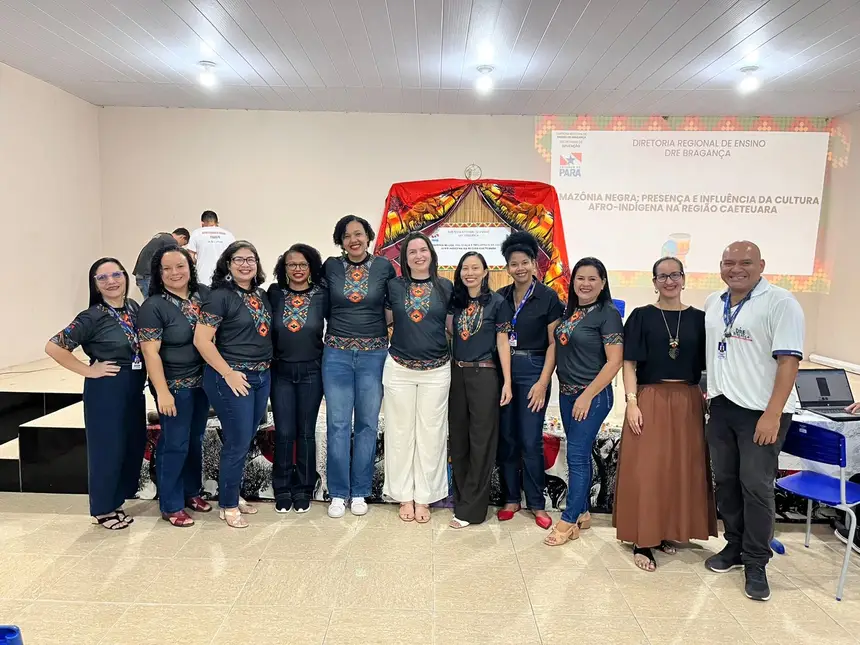
The program continues aligned with national guidelines for education on ethnic-racial relations and reaffirms the role of the school as a space for building citizenship, respect, and diversity.


